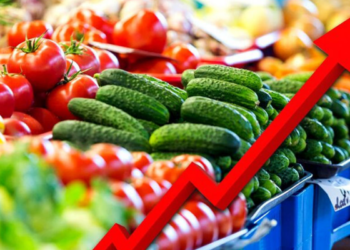The United Kingdom government is set to declare another postponement to post-Brexit border controls on animal and plant products imported from the European Union (EU) amid growing concerns over the country’s inflation rates. This will mark the fifth suspension of plans to enforce these controls, while full checks on British exports to the EU have been in place since January 2021.
The decision comes in response to worries that the new measures could exacerbate the UK’s stubborn inflation, which reached an annual rate of 7.9 percent in June, making it the highest among G7 countries. Food inflation, in particular, registered at a staggering 17.3 percent.
The Financial Times was the first to report on the postponement, citing concerns about potential inflationary effects from additional regulations, especially on fresh food products coming from the EU. According to a government insider mentioned in the FT report, the “driving force” behind the delay is “the need to bear down on inflation.”
The planned implementation of the fresh import regime at Britain’s ports, which was initially scheduled to begin its first stages in October of this year, will now be pushed back. This delay aims to provide businesses and border authorities with additional time to make the necessary arrangements to facilitate the new checks effectively.
A government official, responding to the news, explained that they have been taking into account feedback from stakeholders and acknowledged the importance of giving businesses sufficient time to prepare for the introduction of the checks.
Ministers are expected to reveal updated details on the proposed plans, known as the Border Target Operating Model, in the near future.
The postponement was announced ahead of an interest rate rise by the Bank of England, which increased for the 14th consecutive time. Industry representatives have welcomed the decision, as it will allow for smoother implementation and help avoid major disruptions for UK food retailers, hospitality businesses, and consumers.
Shane Brennan, chief executive of the Cold Chain Federation, applauded the government’s move, stating, “The government has made the right decision to postpone. UK food retailers, hospitality businesses, and consumers were in line for major disruption because many EU food-producing businesses supplying into the UK are not ready for the new requirements.”
The new border checks arrangement, initially slated to start in July of the previous year, was first delayed due to concerns that it might worsen the cost-of-living crisis. However, the government maintains its commitment to delivering the best border in the world and asserts that the Border Target Operating Model introduces an innovative approach to importing that will be introduced progressively.











